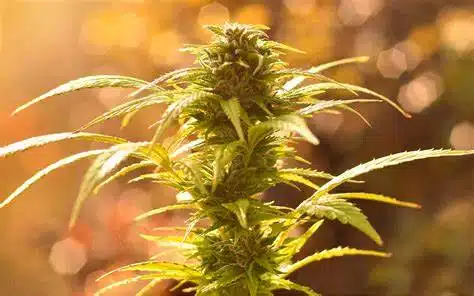Does Weed Affect Reproductive Health?
Hey there, fellow cannabis enthusiasts! Today, we’re diving into a topic that has sparked much curiosity and debate: the potential effects of weed on reproductive health. As the legalization of cannabis continues to spread across the globe, it’s crucial to understand the potential impacts it may have on our bodies, including our reproductive systems. In this article, we’ll explore various subtopics related to this subject, shedding light on the latest research and providing you with valuable insights. So, let’s roll up our sleeves and get started!
The History of Cannabis and Its Cultural Significance
Before we delve into the effects of cannabis on reproductive health, let’s take a moment to appreciate the rich history and cultural significance of this plant. Cannabis has been used for centuries, with evidence of its consumption dating back thousands of years. From ancient rituals to medicinal practices, cannabis has played a prominent role in various cultures worldwide.
The Role of Cannabinoids in the Human Body
To understand how cannabis may affect reproductive health, we need to explore the role of cannabinoids in our bodies. Cannabinoids are the chemical compounds found in cannabis that interact with our endocannabinoid system (ECS). The ECS plays a crucial role in maintaining homeostasis, regulating various bodily functions, including fertility and reproduction.
The Potential Impact of Cannabis on Fertility
One of the primary concerns surrounding cannabis use and reproductive health is its potential impact on fertility. Some studies suggest that heavy and prolonged cannabis use may lead to disruptions in the menstrual cycle and hormonal imbalances, which could affect fertility in both men and women. However, it’s important to note that more research is needed to fully understand the extent of these effects.
Cannabis Use During Pregnancy and Breastfeeding
Pregnancy and breastfeeding are critical stages in a woman’s life, and it’s natural to wonder about the potential risks associated with cannabis use during these periods. Current medical advice strongly advises against using cannabis while pregnant or breastfeeding, as it may pose risks to the developing fetus or infant. THC, the psychoactive compound in cannabis, can cross the placenta and transfer to breast milk, potentially affecting the baby’s neurological development.
The Influence of Cannabis on Hormonal Balance
Hormonal balance is essential for reproductive health, and any disruptions can have significant consequences. Some studies suggest that cannabis use may impact hormone levels, particularly in heavy and chronic users. However, the exact mechanisms and long-term effects are still not fully understood. It’s crucial to approach this topic with caution and consider individual factors such as dosage, frequency, and duration of use.
The Potential Benefits of CBD for Reproductive Health
While THC has received much attention, another cannabinoid called CBD (cannabidiol) has gained popularity for its potential therapeutic benefits. CBD is non-psychoactive and has been studied for its anti-inflammatory, analgesic, and anxiolytic properties. Some researchers believe that CBD may have positive effects on reproductive health by reducing inflammation, alleviating pain, and promoting relaxation. However, more research is needed to validate these claims.
Cannabis and Sexual Health
Sexual health is an integral part of reproductive well-being, and it’s natural to wonder how cannabis may influence this aspect of our lives. Some individuals report enhanced sexual experiences and increased libido when using cannabis. However, it’s important to note that the effects can vary greatly from person to person. Communication, consent, and responsible use are key when incorporating cannabis into your intimate moments.
The Impact of Cannabis on Sperm Quality and Male Fertility
Male fertility is another area of interest when discussing the effects of cannabis on reproductive health. Some studies suggest that cannabis use may affect sperm quality, leading to decreased sperm count, motility, and morphology. However, it’s worth noting that research in this area is still limited, and more studies are needed to establish a clear link between cannabis use and male fertility.
Cannabis and Menstrual Health
For many women, menstrual health is a significant aspect of their reproductive well-being. Some individuals turn to cannabis to alleviate menstrual symptoms such as cramps, mood swings, and bloating. While anecdotal evidence suggests that cannabis may provide relief, scientific research on this topic is limited. It’s essential to consult with healthcare professionals and explore alternative treatments for menstrual discomfort.
Understanding Cannabis and Its Components
Before we delve into the effects of cannabis on pregnancy, let’s take a moment to understand the plant itself. Cannabis contains hundreds of chemical compounds, known as cannabinoids, the two most well-known being THC (tetrahydrocannabinol) and CBD (cannabidiol). THC is the psychoactive compound responsible for the “high” associated with cannabis, while CBD is non-psychoactive and has gained popularity for its potential therapeutic benefits.
The Current Medical Advice
When it comes to cannabis use during pregnancy, the current medical advice is clear: it is strongly advised to avoid using cannabis while pregnant. This recommendation is based on several factors, including the potential risks to the developing fetus and the limited research available on the topic. The American College of Obstetricians and Gynecologists (ACOG) and the Centers for Disease Control and Prevention (CDC) both discourage cannabis use during pregnancy.
The Potential Risks to the Developing Fetus
One of the primary concerns surrounding cannabis use during pregnancy is the potential impact on the developing fetus. THC, the psychoactive compound in cannabis, can cross the placenta and reach the baby’s bloodstream. This exposure may affect the baby’s neurological development, potentially leading to long-term cognitive and behavioral issues. However, it’s important to note that the exact mechanisms and long-term effects are still not fully understood.
The Impact on Birth Outcomes
Studies examining the impact of cannabis use during pregnancy on birth outcomes have yielded mixed results. Some research suggests a potential association between cannabis use and lower birth weight, preterm birth, and stillbirth. However, it’s worth noting that other factors, such as tobacco and alcohol use, socioeconomic status, and access to healthcare, can also influence these outcomes. Untangling the specific effects of cannabis from these confounding factors is challenging.
The Influence on Neurodevelopmental Outcomes
Neurodevelopmental outcomes are another area of interest when discussing the potential effects of cannabis use during pregnancy. Some studies suggest a possible link between prenatal cannabis exposure and an increased risk of neurodevelopmental issues, such as attention deficit hyperactivity disorder (ADHD) and cognitive impairments. However, it’s important to note that these studies often rely on self-reported cannabis use, which may be subject to recall bias.
The Role of CBD in Pregnancy
While THC has received much attention, CBD has gained popularity for its potential therapeutic benefits and is often used for various health conditions. However, when it comes to pregnancy, the research on CBD is limited. It’s crucial to consult with healthcare professionals before using any CBD products during pregnancy, as their safety and potential effects on the developing fetus are still not well understood.
Navigating the Lack of Research
One of the challenges in studying the effects of cannabis on pregnancy is the legal and ethical limitations surrounding research in this area. Due to the legal status of cannabis in many countries, conducting controlled studies involving pregnant women is challenging. This lack of research makes it difficult to provide definitive answers and reinforces the importance of erring on the side of caution.
Seeking Support and Making Informed Decisions
If you’re pregnant and struggling with cannabis use, it’s essential to seek support from healthcare professionals who can provide guidance and resources. Open and honest communication is key to ensuring the best possible outcomes for you and your baby. Remember, healthcare providers are there to support you without judgment and can help you navigate the complexities of pregnancy and substance use.
As we conclude our exploration of the question, “Can weed affect pregnancy?” it’s crucial to prioritize the well-being of both you and your baby. The current medical advice strongly advises against using cannabis during pregnancy due to the potential risks to the developing fetus. While research in this area is still limited, erring on the side of caution is the best approach. If you have concerns or questions, don’t hesitate to reach out to your healthcare provider for guidance and support.
And remember, if you’re looking for a reliable online dispensary to explore a wide range of cannabis products for non-pregnant individuals, be sure to check out West Coast Releaf Online Dispensary. With their extensive selection of concentrates, edibles, vapes, tinctures, and more, they’ve got you covered. Happy exploring and stay informed!
Breastfeeding and Cannabis Use
One of the primary concerns for new moms who use cannabis is its potential impact on breastfeeding. THC can be transferred to breast milk, and its effects on the nursing baby are still not well understood. Current medical advice strongly discourages cannabis use while breastfeeding due to the potential risks to the infant’s developing brain and nervous system. It’s crucial to prioritize the health and well-being of your baby and consult with healthcare professionals for guidance.
Postpartum Depression and Anxiety
Postpartum depression and anxiety are common mental health challenges that many new moms face. Some individuals may turn to cannabis as a potential remedy for these conditions. While some studies suggest that cannabis may provide temporary relief from symptoms, it’s important to note that the long-term effects and safety of cannabis use for postpartum mental health are still not well understood. It’s crucial to explore evidence-based treatments and consult with healthcare professionals for appropriate support.
Sleep Disturbances and Cannabis Use
Sleep disturbances are a common occurrence for new moms, and some may consider using cannabis to aid in sleep. While cannabis may have sedative effects, it’s important to approach this option with caution. THC can affect sleep architecture and may lead to disruptions in the sleep cycle. Additionally, the potential risks of cannabis use, such as impaired cognitive function and dependency, should be considered. Exploring non-pharmacological sleep strategies and discussing sleep concerns with healthcare professionals is recommended.
Pain Management and Cannabis
The post-pregnancy period can bring physical discomfort, such as pain from childbirth or breastfeeding. Some individuals may consider using cannabis for pain management. While cannabis has been used for centuries for its analgesic properties, it’s important to note that the research on its effectiveness and safety for post-pregnancy pain is limited. Exploring non-pharmacological pain management techniques, such as physical therapy or relaxation exercises, and consulting with healthcare professionals are essential.
Hormonal Balance and Cannabis
Hormonal fluctuations are common during the post-pregnancy period, and some individuals may wonder if cannabis can help restore balance. While some studies suggest that cannabinoids may interact with the endocrine system, the specific effects on post-pregnancy hormonal changes are still not well understood. It’s crucial to prioritize overall hormonal health through a balanced diet, regular exercise, and open communication with healthcare professionals.
Substance Use Disorders and Cannabis
Substance use disorders can affect individuals from all walks of life, including new moms. It’s important to be mindful of the potential risks of developing a dependency on cannabis or any other substance. If you find yourself relying on cannabis as a coping mechanism or if you’re concerned about your cannabis use, it’s essential to seek support from healthcare professionals or addiction specialists. They can provide guidance, resources, and personalized treatment options to help you address any substance use concerns and prioritize your overall health and well-being.
Conclusion
As we wrap up our exploration of the potential effects of cannabis on reproductive health, it’s crucial to remember that research in this field is still evolving. While some studies suggest possible links between cannabis use and reproductive health concerns, more research is needed to establish concrete conclusions. As with any substance, responsible use, open communication with healthcare professionals, and staying informed are key. So, whether you’re considering using cannabis for medicinal purposes or simply curious about its effects, make sure to prioritize your well-being and make informed decisions.
And remember, if you’re looking for a reliable online dispensary to explore a wide range of cannabis products, be sure to check out West Coast Releaf Online Dispensary. With their extensive selection of concentrates, edibles, vapes, tinctures, and more, they’ve got you covered. Happy exploring and stay curious! If you are interested in buying weed online and THC products, check out West Coast Releaf online weed dispensary and shop for your weed online and cannabis products at westcoastreleaf.co!













